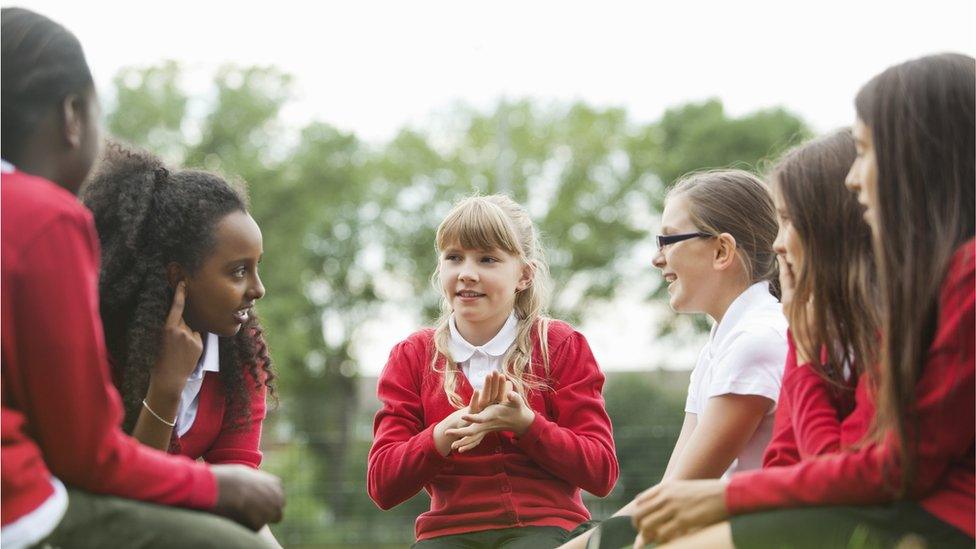Welsh language: Parents asked to record baby talk
- Published
Parentese - are you fluent?
Parents have been asked to record the way they speak to their babies in Welsh to help others learn the language.
"Parentese" is a way of talking that is more interesting to young children, such as calling a dog a "woof".
Welsh-medium nursery provider Mudiad Meithrin and the National Centre for Learning Welsh aim to create a collection of phrases and words.
Prof Enlli Thomas, education expert at Bangor University, said it could have wider implication for other languages.
She said she was not aware of a similar project anywhere else in the world.
The aim of the project is to compile a collection of phrases which can be used as a learning tool for parents and carers who are learning Welsh, or help inform the teaching of parent and baby group leaders.
Common features of baby talk, often described as "parentese", include slower speech, heightened pitch and exaggerated intonation, pauses to encourage responses as well as repetition, gestures and words and phrases not normally used with older children or adults.
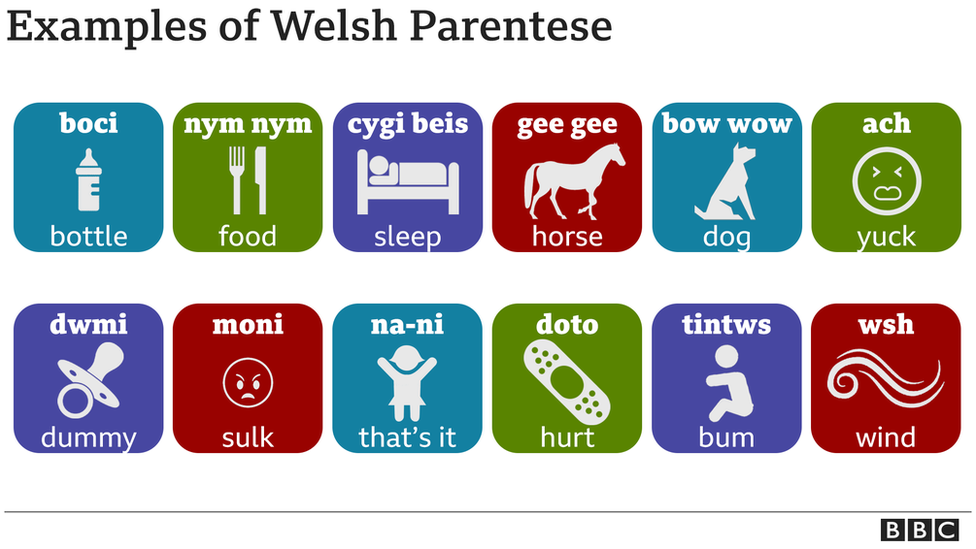
"Children hear sounds and respond differently to very simple words and the idea is we help parents who are learning Welsh to be able to transfer the language very early on with their young children," said Dona Lewis, of the National Centre for Learning Welsh.
"It asks parents to talk slowly and use your voice in a different tempo and in a different way, to transfer some of the more simple words to your very young children.
"The words are very different - so you wouldn't necessarily use 'bow wow', which is a description for a dog, with an adult - you would use it with a very young child.
"'Da', which is a word for thank you, is a common one and lots of animals like 'gee gee' and 'bow wow'."
She said it was a common methodology, but the first time the organisation was developing it in Welsh.
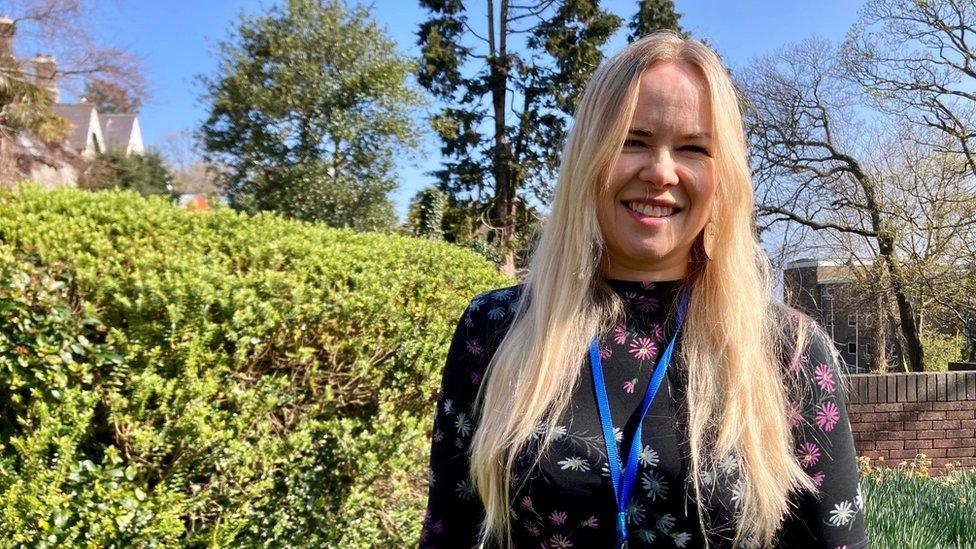
Prof Enlli Thomas says any use of Welsh to children will only benefit their development
Prof Thomas, who is helping with the project, said: "If you're exposed to a language when you're growing up, you learn all kinds of different nuances of how a language is used and the way we use language with children is very different to how we use language with other adults.
"If you haven't been exposed to the language when you were growing up, then you've missed out on learning how you speak to young children."
She explained there was no right or wrong way to speak to babies because any use of the language helps children's development.
Prof Thomas added: "Being exposed to language from as early as possible is the best thing that can happen to a child - the earlier the child is exposed, the better the outcomes for language learning."
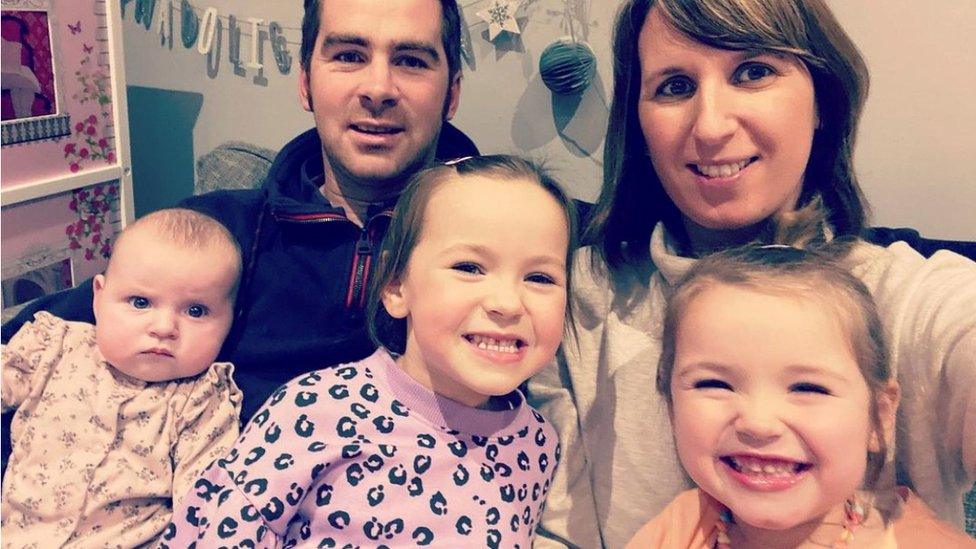
Llinos Lloyd Hughes
Llinos Lloyd Hughes from Llangwm, Conwy County, is a mum to Gwen, five , Alys, three, and seven-month-old Nansi and they are members of Cylch Meithrin and Ti a Fi groups in Cerrigydrudion
"I use many baby words with the girls from a very young age - things like be beis for sleeping, mi fod (dummy), bolws for tummy, po po for hurt, na-na for banana and various animal sounds like mw mw and me me for cows and sheep," said the 37-year-old.
"I definitely think it's beneficial for children to learn these words. They start talking through using baby words and combining sounds before progressing to using vocabulary and language.
"I also feel it creates a special bond between me and the girls in their early years at a stage where they aren't able to communicate their needs through language."
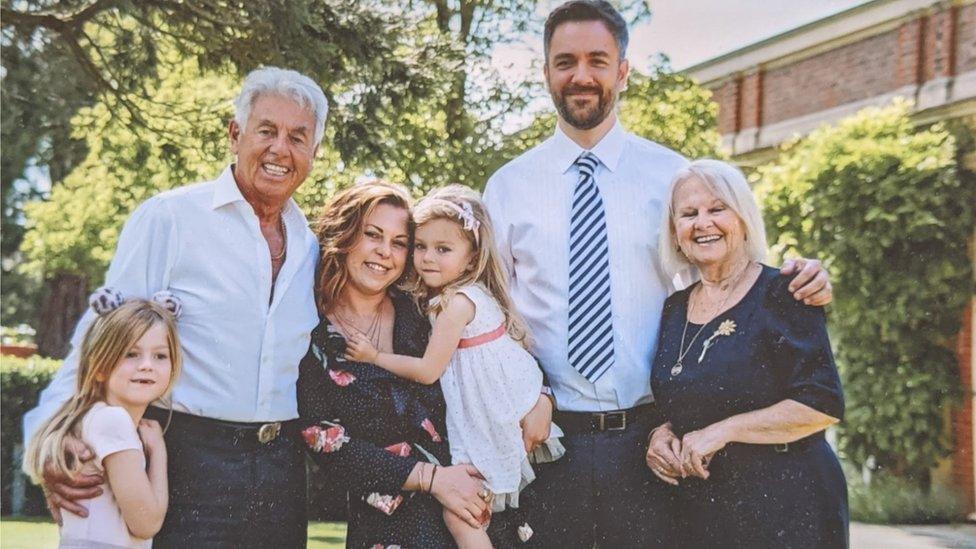
Olwen Rees, pictured right, says it is important children are exposed to the language as early as possible
Olwen Rees, 76, grandmother to Georgina, four, and Alyssa, seven, said developing Welsh skills at a young age was "so important".
She is a member of Cylch Meithrin Dinas Powys children's group in the Vale of Glamorgan.
"We do tend to speak slightly differently with younger children and we are more aware of the vocabulary we use," she said.
"We do tend to go back and use the words we used to say when we were kids, for example, 'oh you have a po-po there', which means hurt, or 'watch out bwci-bo is coming', meaning a ghost.
"I try to speak to them as if they are little people.
"It's important to adapt your vocabulary and language naturally when you speak to babies and young children, and that's why it's so important for children to come to groups so they can start to learn language earlier than when we were doing it."
Related topics
- Published15 March 2020
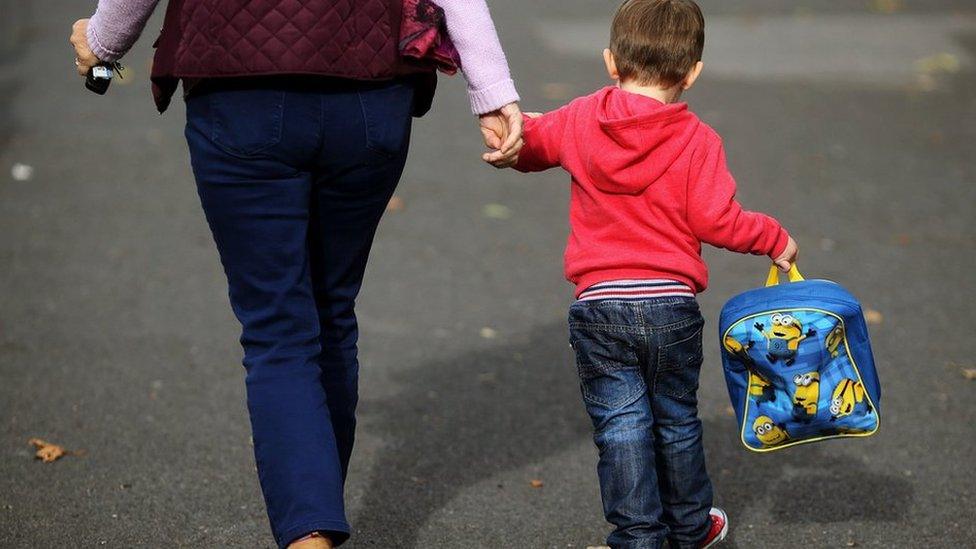
- Published30 March 2022
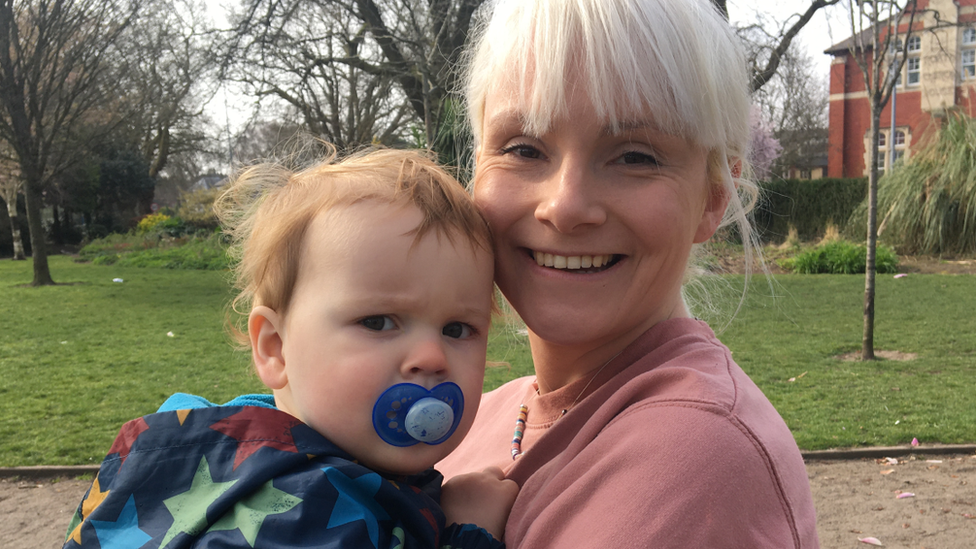
- Published13 July 2021
